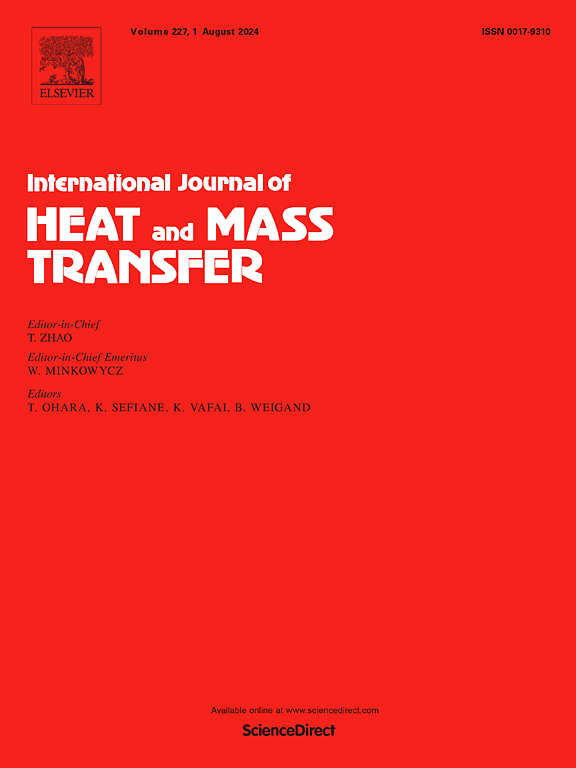用于解决功能分级材料异常热传导正演和反演问题的自适应分数物理信息神经网络
IF 5
2区 工程技术
Q1 ENGINEERING, MECHANICAL
International Journal of Heat and Mass Transfer
Pub Date : 2024-11-03
DOI:10.1016/j.ijheatmasstransfer.2024.126393
引用次数: 0
摘要
本文采用自适应分数物理信息神经网络(PINNs)来解决三维功能分级材料中的反常热传导正演和反演问题。在自适应分数 PINNs 中,采用有限差分 L1 方案来离散异常热传导问题中的时间分数导数。通过将有限差分 L1 方案与自动微分技术相结合,自适应分数 PINN 最大限度地减小了根据控制方程、初始条件和边界条件构建的损失函数,从而获得热传导问题的解决方案。为避免训练过程中各种损失项之间的竞争,采用了自适应损失平衡算法来平衡损失函数不同项之间的相互作用。此外,还使用多项式基函数来扩展表征材料参数或热源的未知函数,旨在提高自适应分数 PINN 在解决逆问题时的性能。本文通过五个涉及反常热传导的正向、反向和非线性问题的数值示例,证明了自适应分数 PINN 的可行性和有效性。本文章由计算机程序翻译,如有差异,请以英文原文为准。
Adaptive fractional physics-informed neural networks for solving forward and inverse problems of anomalous heat conduction in functionally graded materials
In this paper, adaptive fractional physics-informed neural networks (PINNs) are employed to solve the forward and inverse problems of anomalous heat conduction in three-dimensional functionally graded materials. In adaptive fractional PINNs, the finite difference L1 scheme is employed to discretize the time fractional derivatives in anomalous heat conduction problems. By combining the finite difference L1 scheme with automatic differentiation technique, adaptive fractional PINNs minimize a loss function constructed based on the governing equation, initial and boundary conditions to obtain solutions to heat conduction problems. To avoid competition among various loss terms during the training process, an adaptive loss balancing algorithm is adopted to balance the interactions among different terms of the loss functions. In addition, polynomial basis functions are used to expand unknown functions characterizing material parameters or heat sources, aiming to enhance the performance of adaptive fractional PINNs in resolving inverse problems. Five numerical examples involving forward, inverse, and nonlinear problems related to anomalous heat conduction are carried out to demonstrate the feasibility and effectiveness of adaptive fractional PINNs.
求助全文
通过发布文献求助,成功后即可免费获取论文全文。
去求助
来源期刊
CiteScore
10.30
自引率
13.50%
发文量
1319
审稿时长
41 days
期刊介绍:
International Journal of Heat and Mass Transfer is the vehicle for the exchange of basic ideas in heat and mass transfer between research workers and engineers throughout the world. It focuses on both analytical and experimental research, with an emphasis on contributions which increase the basic understanding of transfer processes and their application to engineering problems.
Topics include:
-New methods of measuring and/or correlating transport-property data
-Energy engineering
-Environmental applications of heat and/or mass transfer

 求助内容:
求助内容: 应助结果提醒方式:
应助结果提醒方式:


